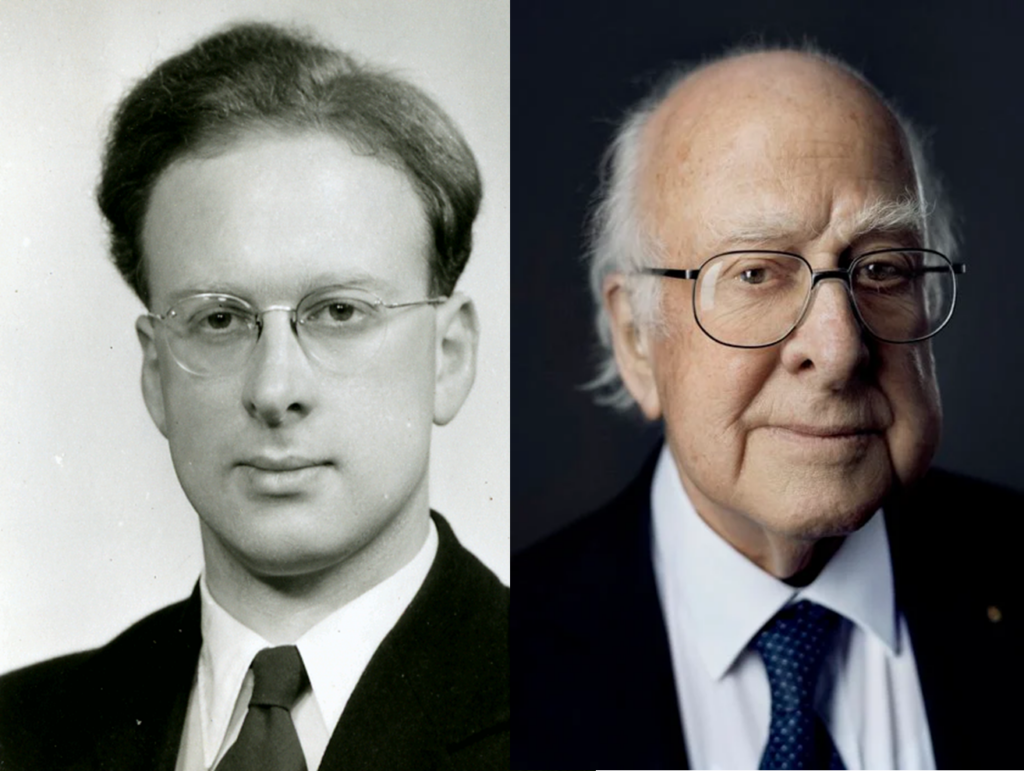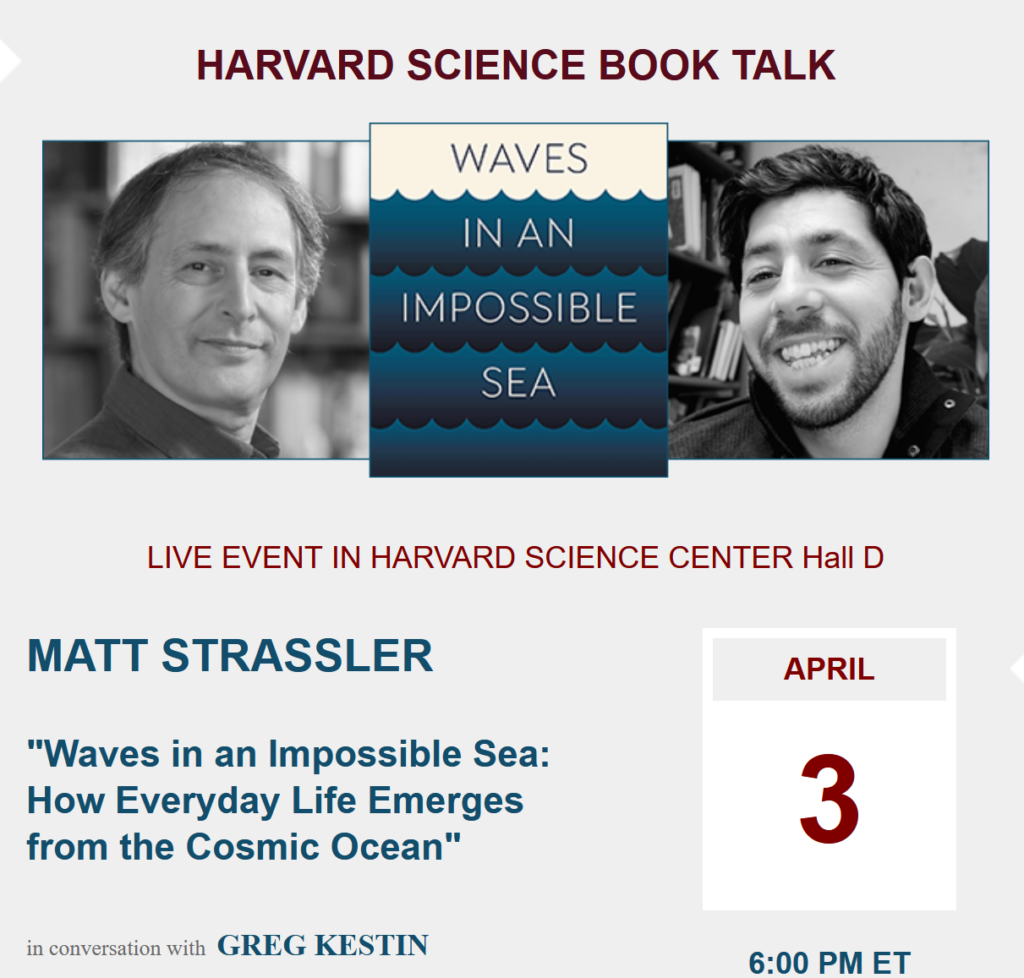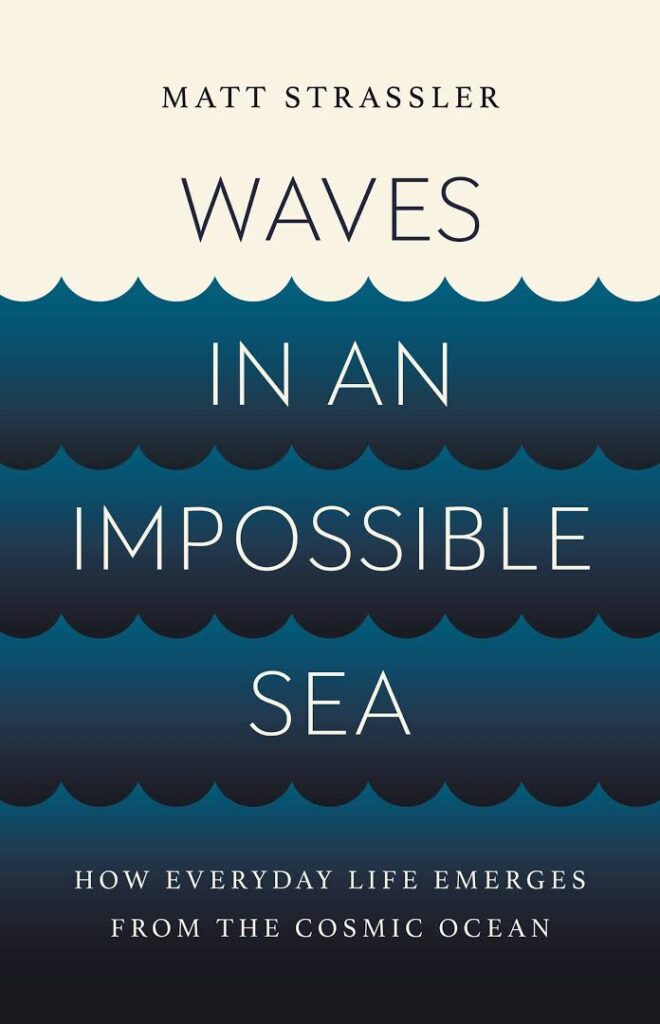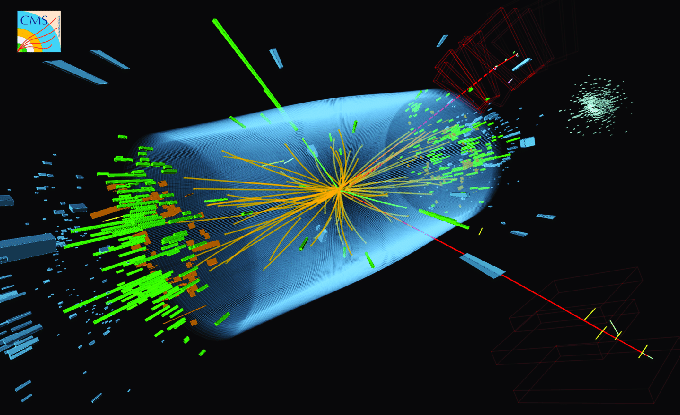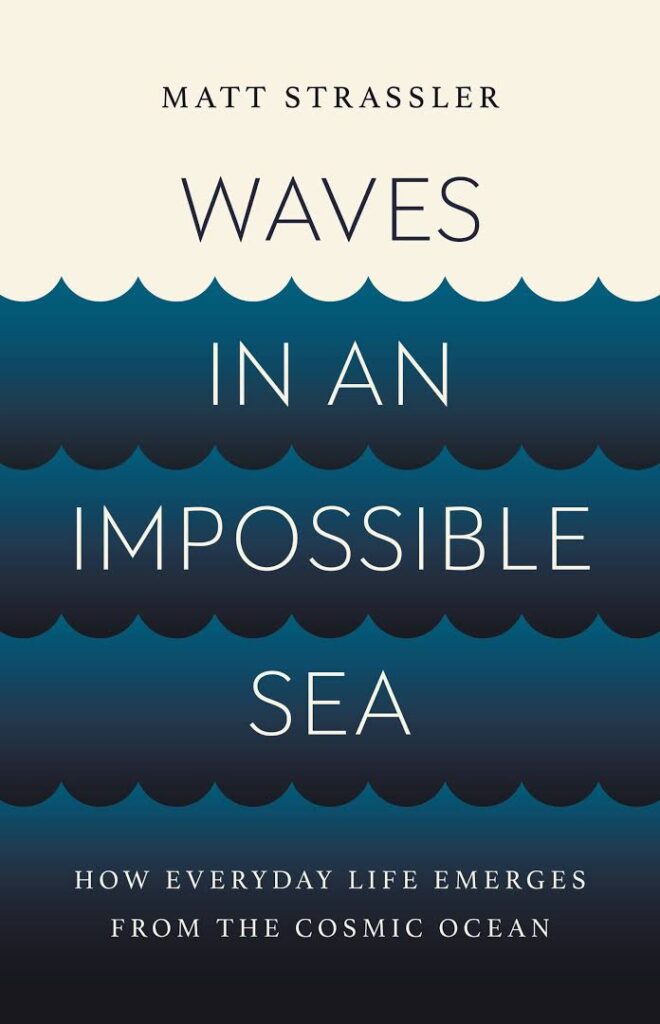A quick note today, as I am flying to Los Angeles in preparation for
- A book talk 4/10 at Vroman’s Bookstore in Pasadena, CA
- A colloquium-style talk 4/11 (related to the book) at the University of Irvine physics department
and other events next week.
I hope many of you were able, as I was, to witness the total solar eclipse yesterday. This was the third I’ve seen, and each one is different; the corona, prominences, stars, planets, and sky color all vary greatly, as do the sounds of animals. (I have written about my adventures going to my first one back in 1999; yesterday was a lot easier.)
Finally, of course, the physics world is mourning the loss of Peter Higgs. Back in 1964, Higgs proposed the particle known as the Higgs boson, as a consequence of what we often call the Higgs field. (Note that the field was also proposed, at the same time, by Robert Brout and Francois Englert.) Much is being written about Higgs today, and I’ll leave that to the professional journalists. But if you want to know what Higgs actually did (rather than the pseudo-descriptions that you’ll find in the press) then you have come to the right place. More on that later in the week.
